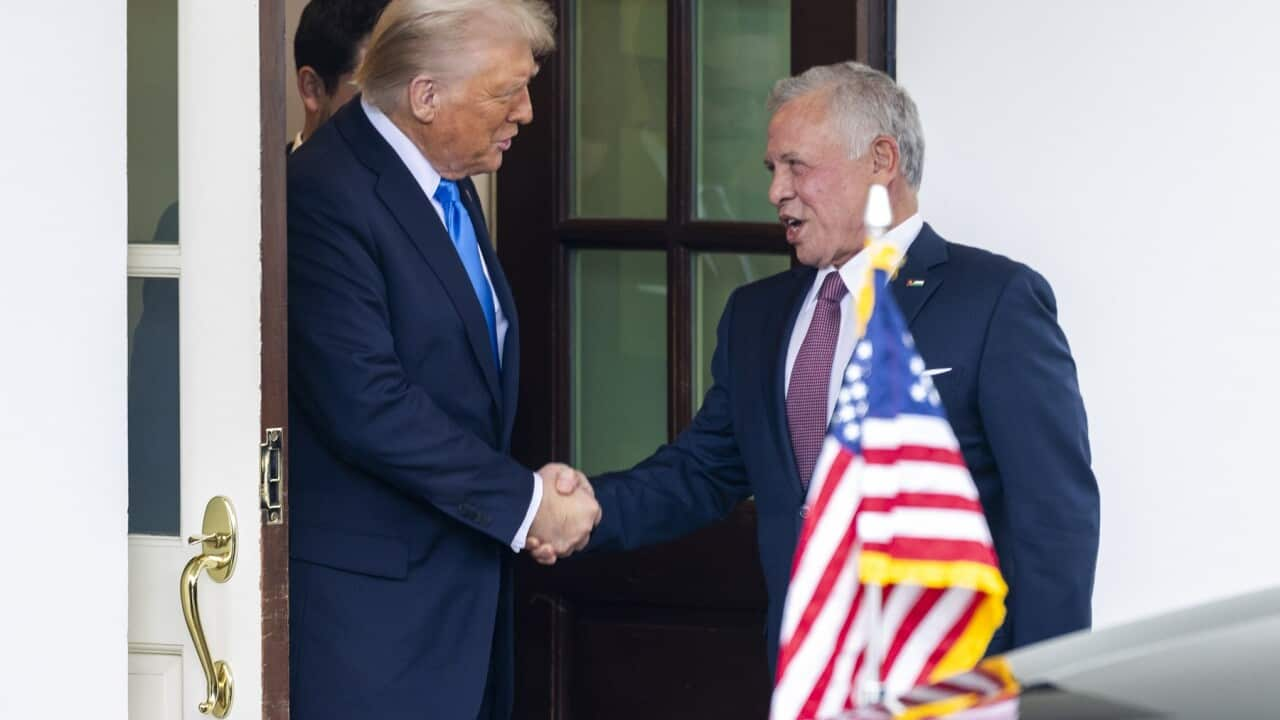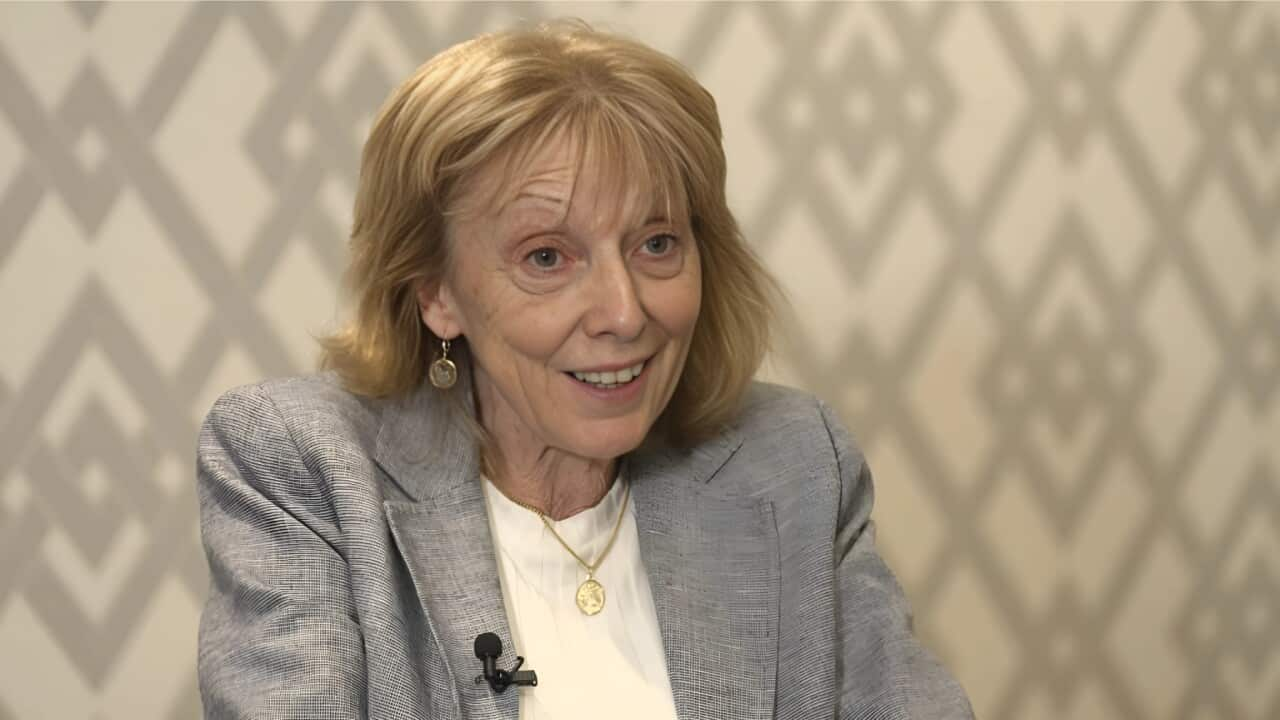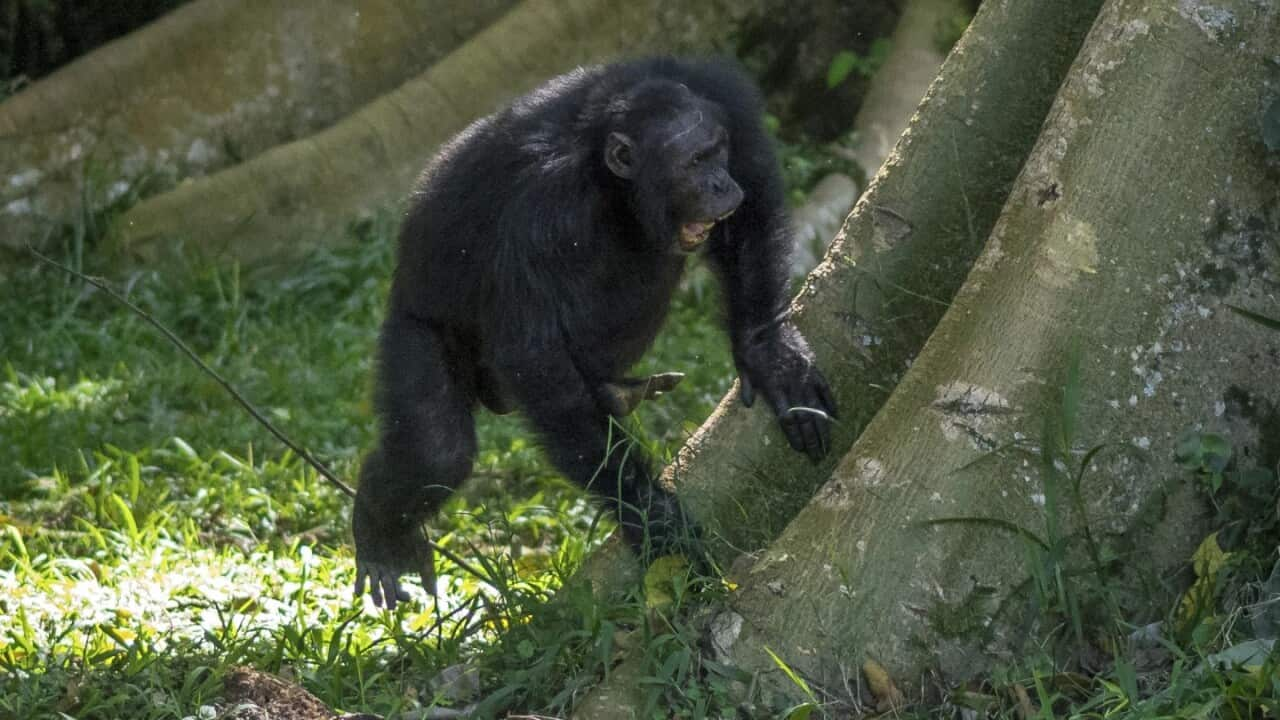TRANSCRIPT
Israeli Prime Minister Benjamin Netanyahu says that if Hamas does not release the Israeli hostages by noon on Saturday the fragile ceasefire in Gaza would end.
"The decision I passed unanimously in the cabinet is this: if Hamas does not return our hostages by Saturday noon the ceasefire will end and the IDF (Israeli Defence Forces) will return to intense fighting until Hamas is finally defeated."
Mr Netanyahu gave the ultimatum after Hamas said it would not free any more Israeli hostages.
The militant group accuses Israel of violating the ceasefire agreement by carrying out several deadly shootings and by delaying the delivery of aid into Gaza.
"In the light of Hamas' announcement of its decision to violate the agreement and not release our hostages, last night I ordered the IDF to gather forces inside and around the Gaza Strip. This operation is being carried out at this time. It will be completed in the very near future."
US President Donald Trump has said Israel should cancel the entire ceasefire if all of the roughly 70 remaining hostages aren’t freed by Saturday.
"Well, I would say this, and I'm going to let that be because that's Israel's decision. But as far as I'm concerned, if all of the hostages aren't returned by Saturday at 12:00, I think it's an appropriate time. I would say cancel it and all bets are off and let hell break out. I'd say they ought to be returned by 12:00 on Saturday. And if they're not returned, all of them, not in drips and drabs, not two and one and three and four and two. ... I'm speaking for myself. Israel can override it, but from myself, Saturday at 12:00. And if they're not, if they're not here, all hell is going to break out."
It was not immediately clear if Mr Netanyahu meant the return of hostages who were due to be released on Saturday, or all of those still held in the Palestinian enclave.
Farhan Haq, the spokesperson for U-N Secretary General Antonio Guterres, is calling on both sides to adhere to the terms of the ceasefire agreement.
"We want to make sure that the hostages are released, but certainly we also want to make sure that both sides fully abide by their commitments in the ceasefire agreement. They need to do that, and they need to resume serious negotiations in Doha for the second phase. And the Secretary-General today in fact was in touch with Qatari officials by phone, trying to see what support we can also provide on this. But it's essential that the ceasefire agreement, which has already brought so much relief to the long-suffering population, particularly in Gaza, be upheld."
Palestinians are fretting the possibility of the truce falling apart.
Samia Jamal is from Jabaliya.
"We do not want war. We want the war to stop. We have had enough of wars. We have begun to wish for death. What is the fault of our children, our young children, what is their fault? We suffered in the winter. We want the war to stop. We have enough fear."
Several Israelis gathered on the streets of Tel Aviv following Mr Netanyahu's threat to terminate the ceasefire agreement.
Anat Angrest, the mother of Israeli hostage, Matan Angrest, is among those protesting.
"We have come here, the families of the hostages, to send one call to the Prime Minister to implement all the stages of the deal, and to shorten the time of the stages and to concentrate them all in one stage. We heard from Trump that it is possible, and he supports it. ... I am a mother of a boy who is a soldier and a citizen of the state of Israel demanding from the government to do its moral duty and bring back my son home. My son, that it sent to defend the country, to bring him back home.”
This comes as President Trump again floats the idea of the US taking control of Gaza and redeveloping it as a tourist destination.
Speaking on Tuesday, he said the plan would not require US funding and will bring peace to the Middle-East.
REPORTER: "Mr President, how to how is the US, how is one of us going to own Gaza? Your White House has made clear taxpayer dollars won't be used for this. So what money you're going to use to buy Gaza?"
TRUMP: "We'll, we're not going to buy anything. We're going to have it and we're going to keep it. And we're going to make sure that there's going to be peace and there's not going to be any problem and nobody's going to question it, and we're going to run it very properly. And eventually we'll have economic development at a very large scale, maybe the largest scale on that site. And we'll have lots of good things built there, including hotels and office buildings and housing and other things. And we'll make that site into what it should be."
Mr Trump made the remarks while meeting with Jordan’s King Abdullah II at the White House.
The talks with the US President follow Mr Trump's threat to cut aid to Jordan if it refuses to accept Palestinians forcibly relocated from Gaza under his redevelopment plan.
King Abdullah rejects any land annexation or forced displacement but says Arab nations will present a response to the US.
“We have to keep in mind that there is a plan from Egypt and the Arab countries. We've been invited by Mohammed bin Salman to have discussions in Riyadh. I think the point is, is how to make this work in a way that is good for everybody. Obviously, we have to look at the best interests of the United States, of the people in the region, especially to my people of Jordan. And we're going to have some interesting discussions today. I think one of the things that we can do right away is take 2,000 children that are either cancer children or in very ill state to Jordan as quickly as possible and then wait for, I think, the Egyptians to present their plan on how we can work with the president to work on Gaza challenges.”
The Arab League will hold an emergency meeting on Gaza later this month.
Mr Trump has suggested withholding aid from Jordan and Egypt if they do not comply.
The king, repeatedly asked by reporters about Mr Trump’s vision for the Middle East and the possibility of Jordan accepting large numbers of refugees from Gaza, gave no substantive response.
Sitting with President Trump, King Abdullah spoke of him as a man of peace.
"Mr. President, I truly believe that with all the challenges that we have in the Middle East, that I finally see somebody that could take us across the finish line to bring stability, peace and prosperity to all of us in the region. And it is, I think, our collective responsibility in the Middle East to continue to work with you, to support you, to achieve those lofty goals. So I'm very delighted to be here."
Analysts have expressed significant concerns over President Trump's proposal to annex and redevelop the Gaza Strip.
Critics argue that forcibly relocating Gaza's two million residents could violate international law and be tantamount to ethnic cleansing.
Experts also warn that such a move could destabilise the region, potentially leading to a wider conflict.
This comes as dozens of trucks carrying aid for Gaza crossed the Egyptian side of the Rafah border crossing on Tuesday into the Strip.













